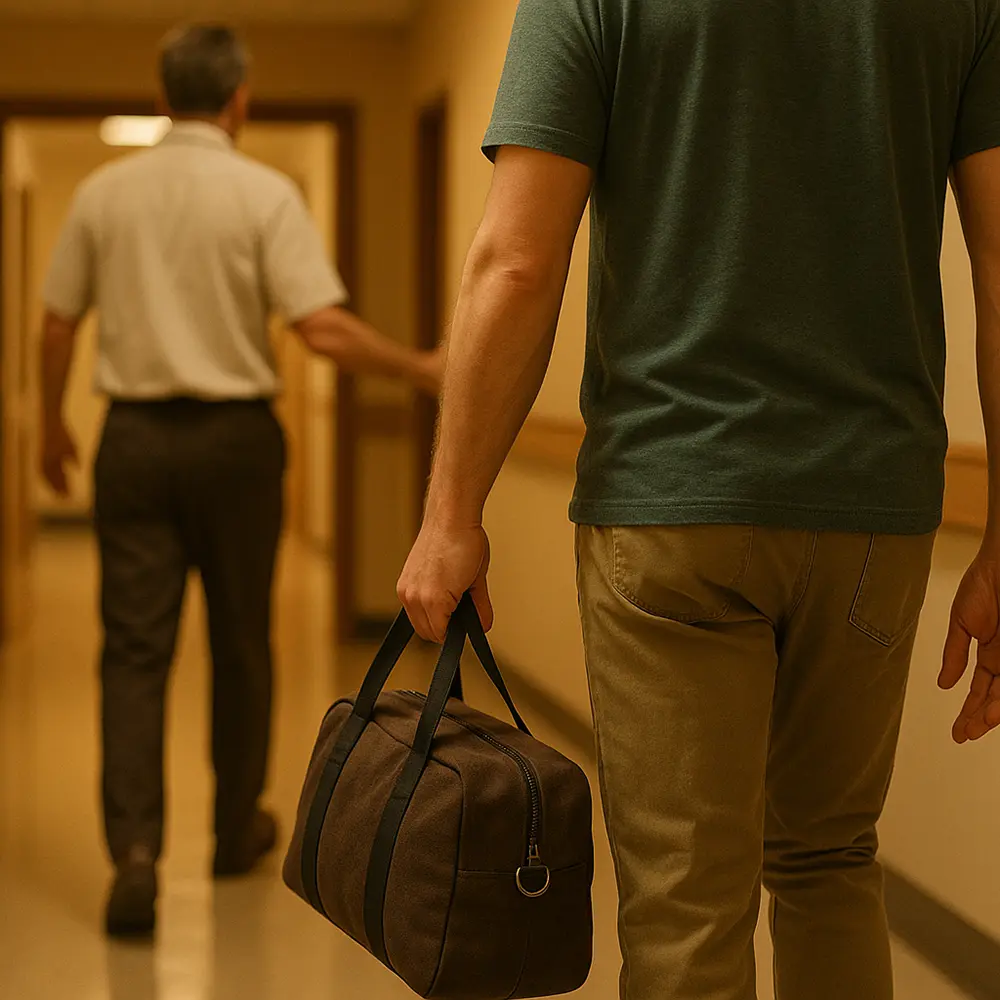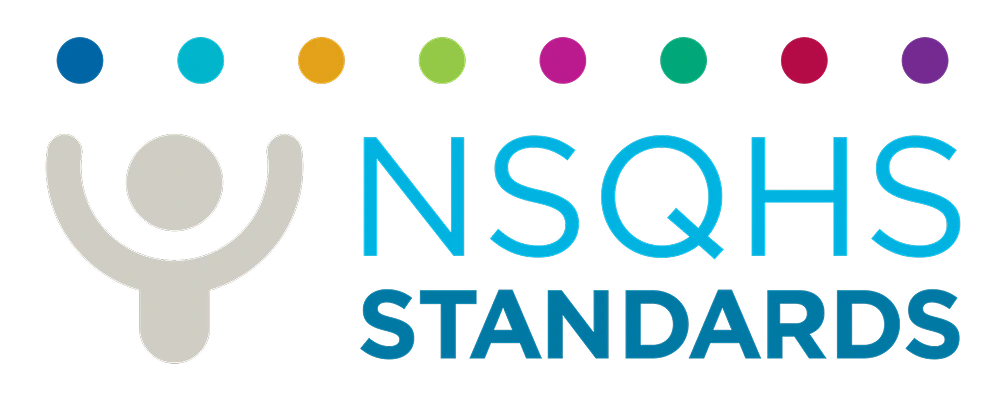Our rehab facilities and locations
From peaceful shared spaces to onsite medical care, our facilities are built to support focus, connection and healing at every stage of recovery.
If you’re considering inpatient rehab, you’re in the right place. We offer supportive, live-in programs designed to help you stabilise, recover, and rebuild your life.
Take a self-assessment or speak to someone now, with no pressure to commit.


Inpatient rehab is a live-in recovery service for people experiencing serious addiction or mental health challenges. It offers structured care, safety, and support while you stabilise. At The Hader Clinic, our inpatient rehab programs combine medically supervised detox, therapeutic group work, one-to-one counselling, and relapse prevention to help you create lasting change.
Whether you’re struggling with alcohol or drug addiction, managing co-occurring mental health issues, or feeling stuck in a harmful living situation, we’re here to guide your recovery. Many of us have walked this path ourselves. We know how overwhelming it feels, and we also know what’s possible when the right support is in place.
We provide round-the-clock care (24/7 Nurses) in a residential setting, with therapy, detox, education and relapse prevention tailored to your unique needs.
We offer a range of specialised inpatient rehab services to meet different needs and circumstances, including dedicated care for alcohol, drug, and mental health recovery.
According to recent data on illicit drug use, almost half of all Australians over 14 have used illicit drugs in their lifetime, highlighting just how widespread this issue has become.

Many of us at The Hader Clinic have lived through addiction ourselves. We know firsthand that this isn’t about weakness or willpower — it’s about survival. Addiction rewires the brain, making the pursuit of relief more powerful than anything else. Inpatient rehab gives people the safety and support they need to break that cycle, reset their nervous system, and begin to feel like themselves again.

When you’re trapped in cravings or using just to function, once-a-week therapy isn’t enough. Inpatient care offers the pause button. It’s a reset, where you can fully focus on recovery with no distractions.

We don’t just hand you a bed and a timetable. Our care is deeply individualised and medically informed, from supervised detox through to the final relapse prevention session. Every person is treated with compassion and clinical insight.

Most of us didn’t use drugs just to party; we used them to cope. We see anxiety, trauma, depression and addiction as part of the same story, and our dual diagnosis approach helps untangle it.
In rehab, change happens in the small moments: a hard truth in group, a breakthrough in counselling, a day you make it through without using. We help you turn those moments into habits.
This short, confidential quiz takes less than two minutes and can help you make sense of what’s going on. Choose the category that feels most relevant to you — whether it’s alcohol, drugs, or a mix of concerns — and we’ll guide you through a few simple yes/no questions.
At the end, we’ll let you know if your answers suggest it might be time to consider rehab, and share safe, confidential options for getting started.


We’ll listen without judgment and help you understand your options.

We’ll talk you through treatment pathways that align with your needs.

We’ll coordinate admission and help you prepare for your stay.
We’re here whenever you’re ready – book a call or speak to someone now.
We’re not just another rehab centre. Many of us achieved long-term sobriety. Our care is honest, trauma-aware, and focused on long-term outcomes.
We’re fully accredited under the NSQHS Standards through the ACSQHC. Our team follows national guidelines to deliver safe, evidence-based care in every aspect of treatment.





We offer a range of evidence-based services beyond inpatient care to meet different needs, goals, and stages of the recovery process.
From peaceful shared spaces to onsite medical care, our facilities are built to support focus, connection and healing at every stage of recovery.
Medically supported detox, inpatient residential rehabilitation, and transitional housing programs.


Clients received a personalised treatment plan.
Completed their full recommended inpatient stay.
Reported improved mental health by discharge.
Did not relapse in the first 30 days post-rehab.
We track long-term success, not just attendance. Our inpatient programs are structured to support every stage of recovery, from detox through to relapse prevention.
You don’t need to have all the answers before reaching out. Whether it’s for yourself or someone you love, we’re here to help you get started.

Take a quick, private quiz to explore safe support options.

Schedule a confidential call with a specialist at a time that suits you.

Speak to someone immediately for guidance and support.
We make our programs as accessible as possible, with transparent pricing and a range of funding pathways for eligible clients.
We offer clear, upfront pricing for all inpatient programs. Costs vary based on treatment length and level of care.

Private health, self-funding, and external funding may be available depending on your situation and eligibility.

Our clinical and peer support team brings together professional expertise and lived experience, creating a space of safety, trust, and understanding.


For more than 20 years, we’ve helped people recover from addiction and reconnect with themselves, their families, and their futures.
Whether you're seeking rehab for yourself or trying to help someone you care about, we have guidance and services designed to support both paths.
Reaching out can feel overwhelming, but it’s often the beginning of something better. Talk to someone who understands what you're going through.
Speak to someone who understands
When you reach out to us, we begin with a confidential assessment to understand your circumstances, including the severity of your drug and alcohol use, your living situation, and any co-occurring mental health condition. This helps us determine if inpatient addiction treatment is the safest and most effective next step.
Our admissions team works closely with clinicians to assess your physical health, psychological wellbeing, support system, and personal goals. We’ll talk with you (and your GP, if needed) to build a clear picture of your needs.
Inpatient rehab is often recommended if you’re in crisis, unable to stop using on your own, have a history of relapse, or are living in an environment that isn’t supportive of recovery. For many people, a supervised, structured, and supportive environment is what makes recovery possible. If inpatient care isn’t right for you, we’ll suggest other pathways, including outpatient rehab or short-term rehab options.
Yes, many of our clients take medication for depression, anxiety, bipolar disorder, or other mental health conditions. Our inpatient rehab centres are equipped to manage medications as part of your broader treatment plan safely.
We work in partnership with your existing mental health care providers, or we can refer you to a psychiatrist if needed. Our multidisciplinary care team includes nurses, case managers, and counsellors who monitor how your medication is supporting your recovery journey.
In fact, treating mental health and substance use together is essential. If your symptoms are untreated or mismanaged, they can interfere with your ability to engage in the behavioural and psychological work of recovery. Medication may be a stabilising factor that allows you to gain insight, engage in therapy, and move through the stages of change with more clarity.
You won’t need to stop necessary medication before entering care. Our accommodating mental health rehab programs will keep you safe and healthy throughout your inpatient stay.
We recognise that cultural safety and spiritual support can be vital to healing. That’s why we offer dedicated pathways for Aboriginal and Torres Strait Islander clients, including access to culturally informed staff and care models that reflect the values of their communities. Our rehab services for Aboriginal communities are designed to offer respect, connection, and relevance in every part of care.
We also work to meet the needs of clients from diverse religious backgrounds. Whether that means supporting space for prayer, honouring dietary restrictions, or integrating personal faith into recovery, our team approaches every request with flexibility and respect. This forms part of our broader faith-based addiction recovery options, which acknowledge the role spirituality can play in healing.
We regularly welcome clients from outside Melbourne, including rural Victoria and other states. If you’re travelling for care, our admissions team can help coordinate transport options and plan for arrival.
We also understand the added stress of being far from home. Our staff provide extra emotional and logistical support to interstate clients, including contact with family, transition planning, and a steady routine to help you settle in. We aim to create a therapeutic community that feels safe and grounded, no matter where you’ve come from.
We may also be able to assist with documentation for Centrelink or private health fund claims if required. If you’re unsure about whether travelling for inpatient care is realistic for you, we’re happy to talk it through and help you explore your options.
It’s very common to feel uncertain as your discharge date approaches. Recovery doesn’t follow a set timeline, and sometimes the standard length of stay isn’t quite enough. At The Hader Clinic, we assess your readiness collaboratively, taking into account your mental health, physical stability, support network, and personal confidence.
If you’re not ready to leave, there are several pathways forward. You may be able to extend your inpatient stay, shift into one of our short-term programs, or transition into step-down care like day programs or outpatient rehab. Preventing relapse is a key part of our planning, so we take great care to ensure you're not leaving before you're ready.
We’ll help you focus on your recovery at every stage, even if that means staying a little longer to solidify the changes you’ve worked hard to make.
Yes. If it’s clinically appropriate, we can help you step down into transitional housing after completing an inpatient program. Many clients choose this path to maintain structure and accountability while re-entering daily life.
Our transitional housing program offers shared accommodation, peer support, and access to case management and group therapy. It’s ideal for people who still need support but no longer require 24/7 supervision. You’ll continue working on behavioural and psychological goals while gaining more independence and rebuilding your living situation.
This bridge between inpatient care and full community reintegration can be a crucial stage in the journey to recovery.